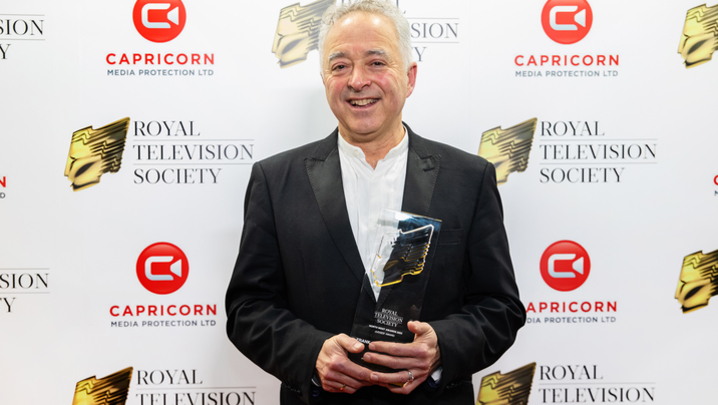Ade Adepitan on preparing for the Paralympics – and why he could see so little of the action from Tokyo.
This will be my third time presenting the Paralympics. I was a pundit for the BBC in Beijing. In 2012 and 2016, I was a presenter in London and Rio for Channel 4.
To prepare, I have been updating my knowledge of the athletes. I still play wheelchair basketball at club level. Quite a few of the players, such as Gaz Choudhry and Helen Freeman, who are in the national team, I know well. I trained some of them as they worked to get into the team.
I get up at 5:30am and do two-hour sessions with them. I’ve also been speaking to my old tennis coach, Stuart Wilkins, on WhatsApp. I’m lucky that I’ve got direct sources to the games.
It’s brilliant that more than 70% of Channel 4’s Paralympics presenting team are disabled. The other day, Gaz Choudhry said to me, “Why is it that you so often see able-bodied people presenting Paralympic sport, but you never see people with disabilities working as presenters at the Olympics?”
JJ Chalmers was a presenter at the Tokyo Olympics, but that was the first time this has happened.
We need to see more former Paralympic athletes given the opportunity to be Olympics presenters.
Last year, because of Covid, the wheelchair basketball season was shut down. But now I go to a nearby park at Ravenscourt in west London, where there are outdoor basketball courts.
The team has started doing some three-on-three basketball sessions. Our club sessions have also started to return. It’s only in the past two weeks that we’ve been allowed to play contact basketball. Two negative Covid tests need to be sent in the previous week. The amount of admin is insane.
Once you start playing again, you realise how much you’ve missed it and the buzz you get from playing.
During the first lockdown, in May 2020, I got a new sports wheelchair. For seven or eight months I wasn’t able to use it. It was frustrating, seeing this brand-new wheelchair sitting there gathering dust.
Not being able to play basketball during lockdown, I was worried about putting on weight. To keep up my fitness levels, I did a live stream on Instagram with my brother, Olu, who’s a personal trainer and nutritionist, which we called FitnessFriday.
It was available to both able-bodied athletes and those with impairments. I hate it when disabled people are put in silos – it feels like segregation.
People are not disabled by their impairment, but by the barriers society puts in front of them. If you live in a town where the gym isn’t accessible, your disability is the gym rather than the impairment.
If the gym has doors that are wide enough for wheelchairs and the equipment is low enough for you to use and there are ramps and accessible toilets, you no longer have a disability. We should make everything accessible to everyone.
On the subject of Instagram, I’ve now gathered about 17,000 followers. It’s a nice community and we speak regularly. I give my followers the opportunity to ask me questions about anything they like.
We have a seven-month-old baby, so watching a lot of the Olympics on TV wasn’t possible. It would have been really unfair to my wife to watch the telly when I should be looking after Bolla. He’s a busy lad who hates to sit still.
Sport is an international language. I was thrilled that Tokyo was such a big success and helped to lift everybody’s mood.
The Paralympics are even more important because, when times are tough, it’s people with disabilities who suffer the most. To see disabled athletes competing at the top level is a massive boost to everyone’s morale.
For disabled people in parts of Africa and India who are living in extreme poverty, the opportunity to see disabled people doing extraordinary things at the Paralympics is inspirational.
Ade Adepitan is presenting the Tokyo Today Paralympic Highlights show at 5:00pm on Channel 4 until 5 September.




